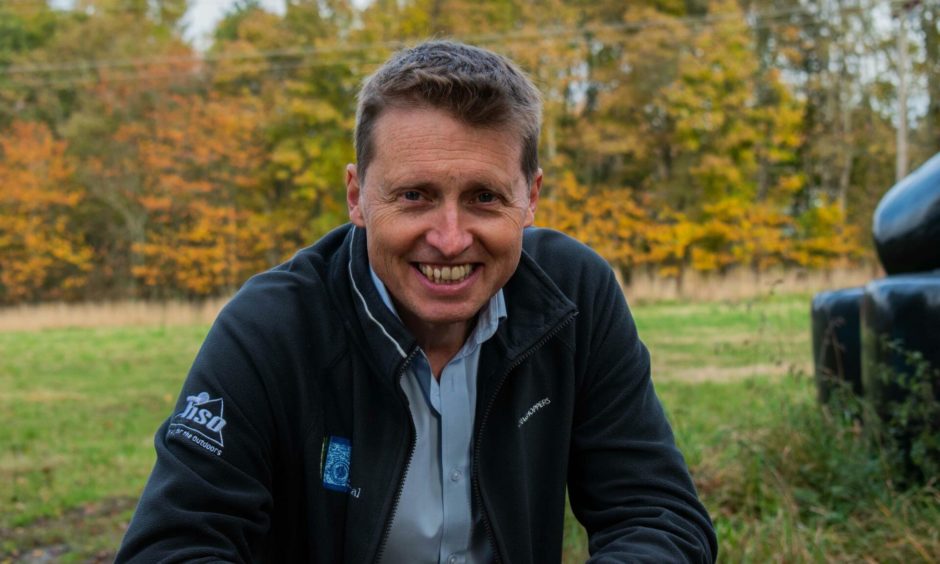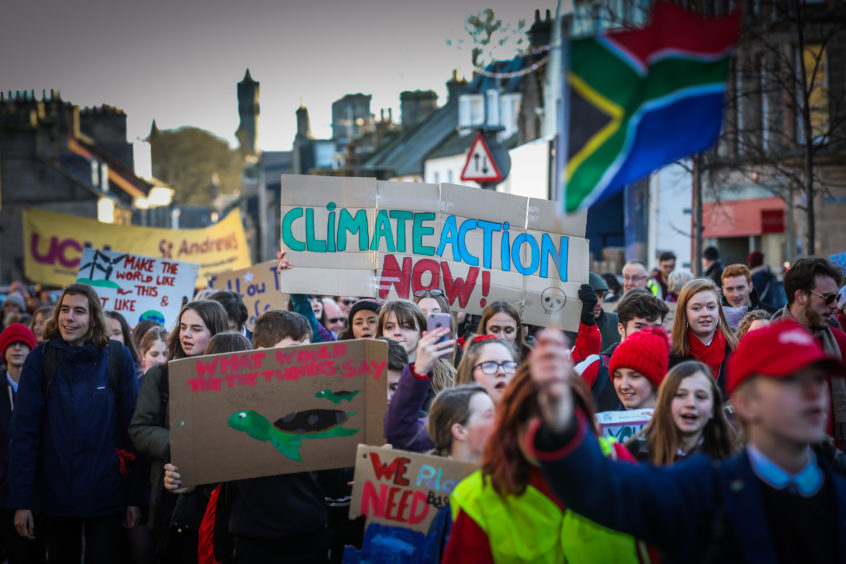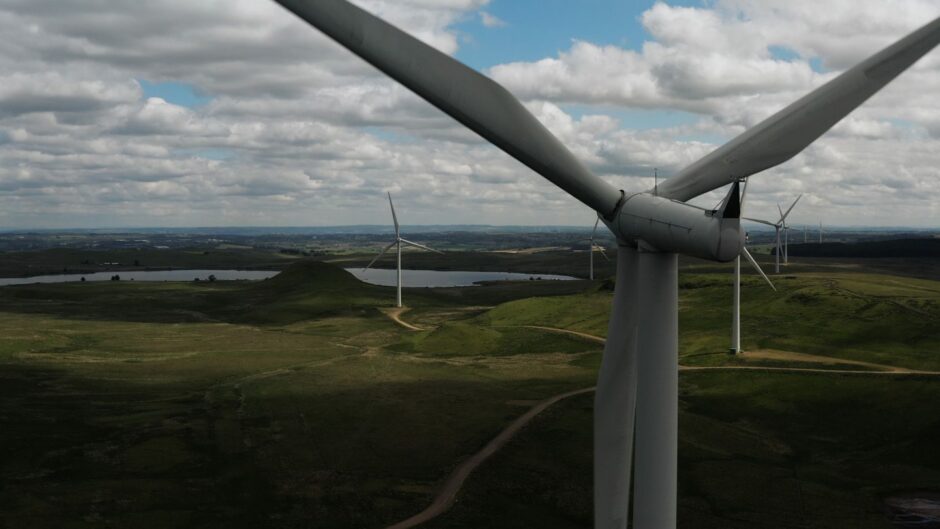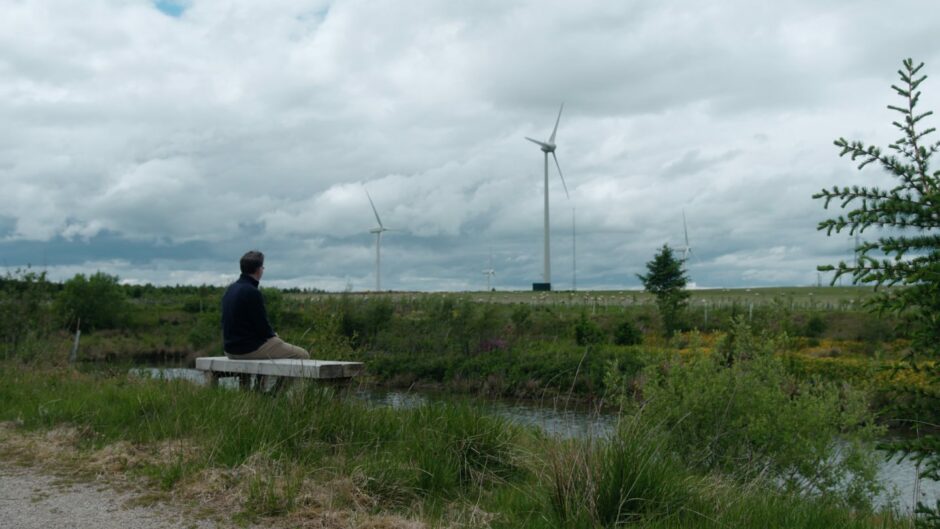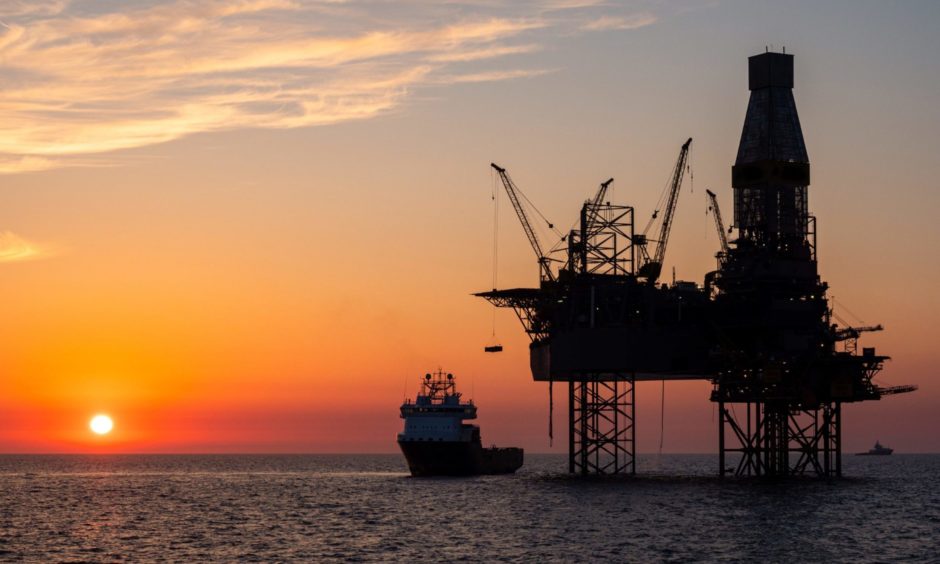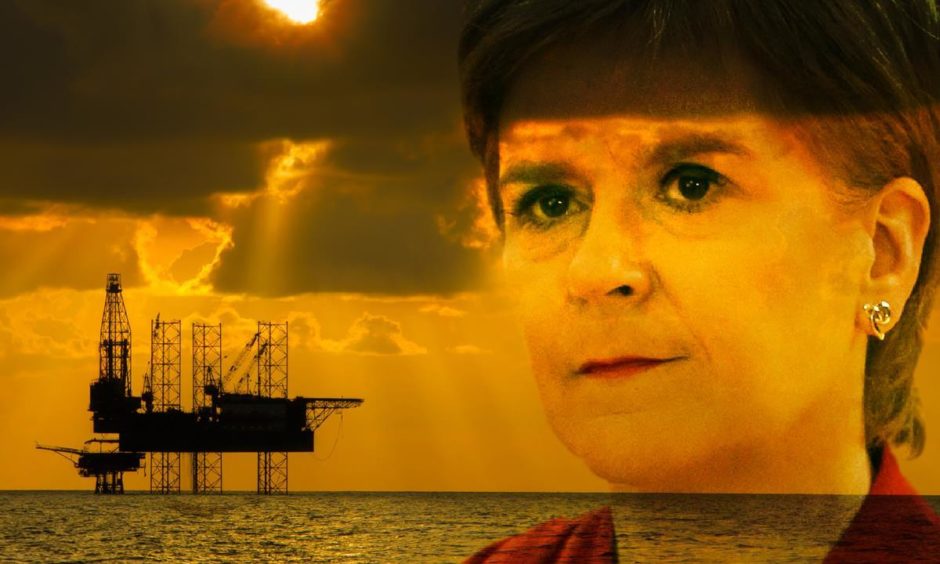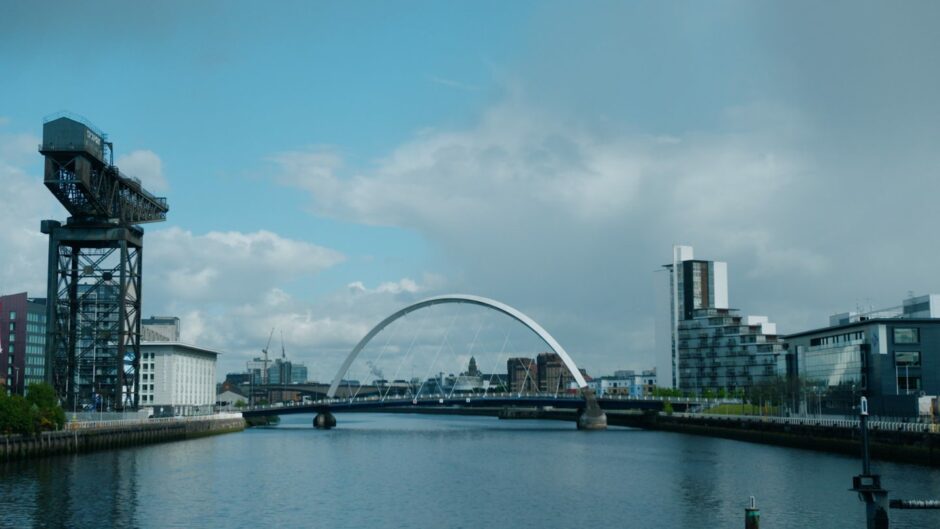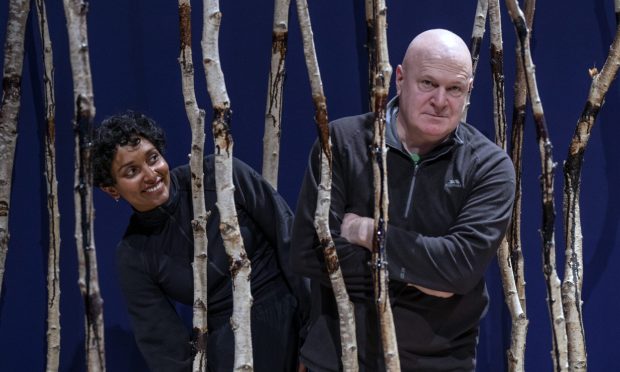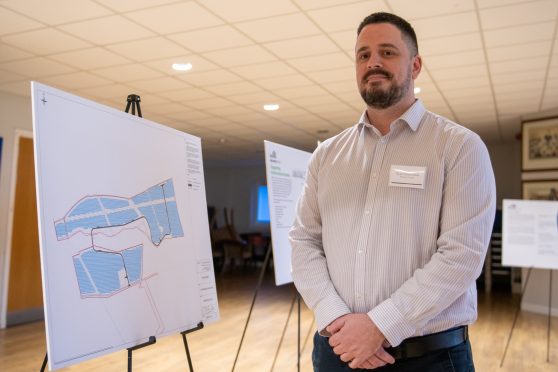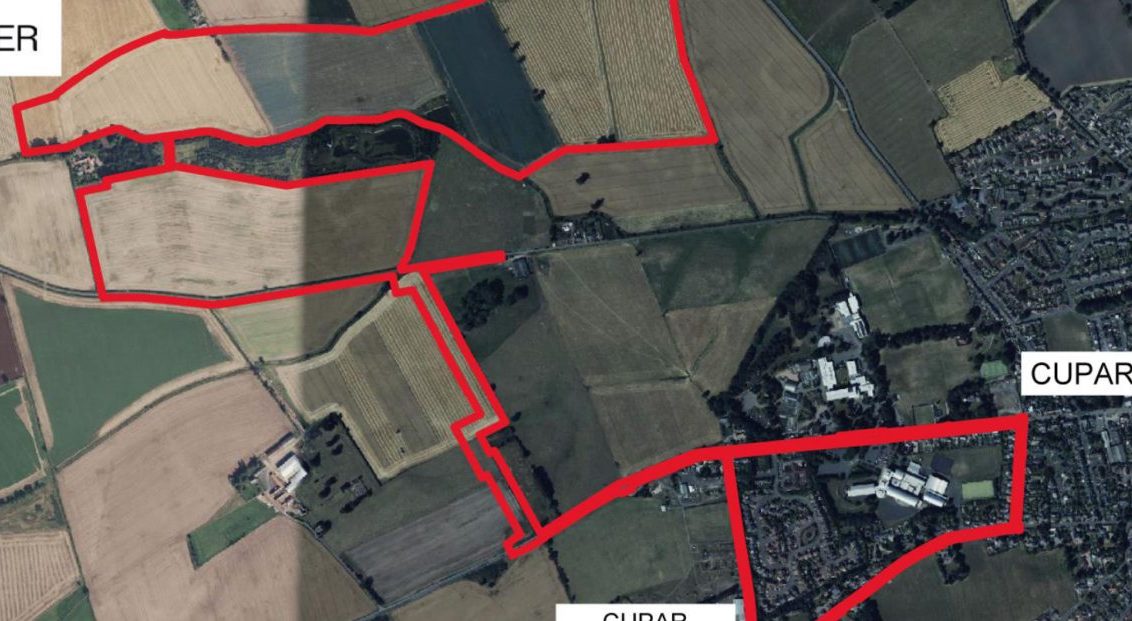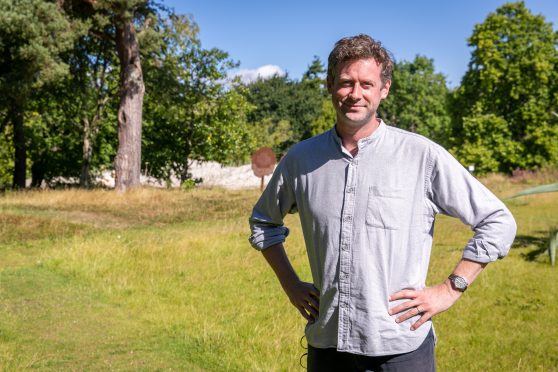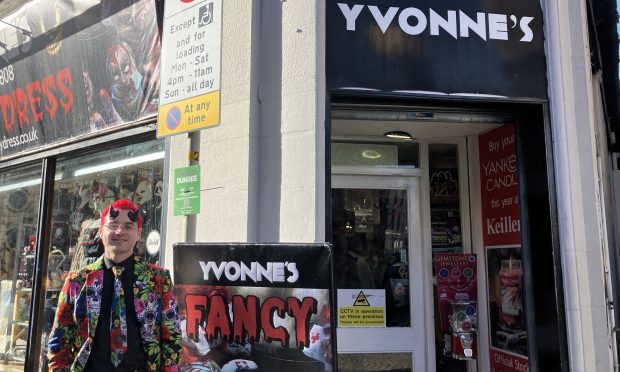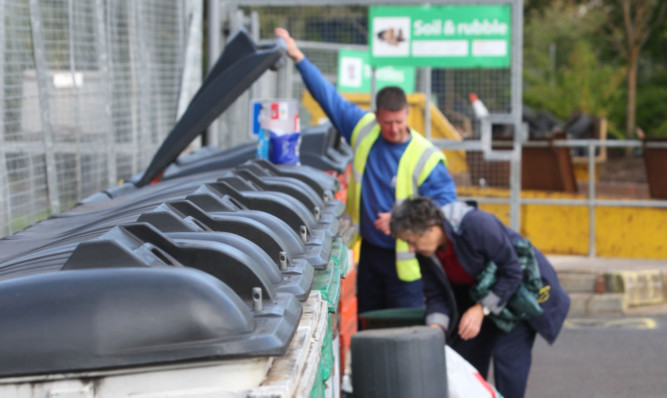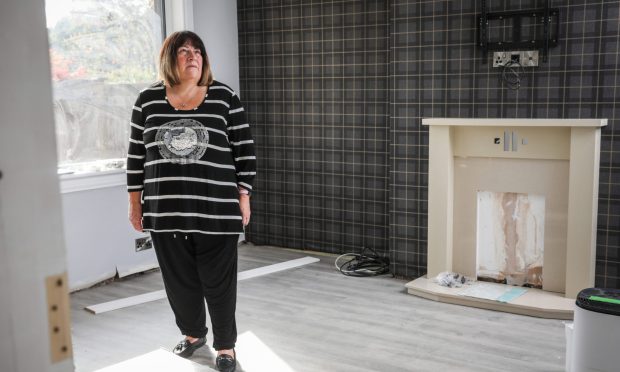Michael Alexander speaks to the filmmakers behind a documentary which premiered in Dundee, charting Scotland’s journey to tackle climate change, the progress made and the challenges ahead.
As the COP26 conference in Glasgow entered its final stages last weekend, it was clear that Scotland has a way to go in the fight against climate change, with no country having yet done enough to tackle this global issue.
But if there’s one thing that film makers Ted Simpson and Finbar O’Sullivan wanted viewers to take away from their new film ‘Scotland: Our Climate Journey’, which premiered at DCA on November 11, then it was a “sense of hope”.
The Englishmen have immersed themselves in Scotland’s climate change journey over the past six months while making the hour-long documentary on behalf of the Perth-based Royal Scottish Geographical Society (RSGS).
Their reputation for environmental film making grabbed the attention of RSGS CEO Mike Robinson in 2020 when they released ‘The Cull: Scotland’s Deer Dilemma’ which focussed on rewilding and deer management in the Scottish Highlands.
Impressed
Mike, who was chairman of the Stop Climate Chaos coalition from 2006-2010, commissioned them to make a film, ahead of COP26, about Scotland’s journey in trying to tackle climate change over the past decade.
Reading through a 90-page document collated by Mike, and bringing their own “spin” to the project, Ted and Finbar decided to anchor the film on the far reaching Climate Change (Scotland) Act 2009, which set tough targets to reduce greenhouse gas emissions more ambitious than those for the wider UK.
Through interviews with leaders of industry, activists and community organisers, the resulting film shares Scotland’s story as it relates to climate change and reflects on the lessons that Scotland’s learned along the way.
It also reflects on the things that Scotland could do better and aims to offer a “real learning experience” for other countries as well.
Most significantly, however, it highlights some of the smaller community projects in Scotland that are already trying to make a real positive difference.
Community initiatives
“What the film brings to me is a sense of hope,” explains Fin, who produced the documentary.
“From my point of view, one of the biggest crises in climate change is when people feel they can’t do anything, when they don’t have any power to make a change because it’s pointless – apathy sets in then everyone loses.
“By highlighting some of the smaller community initiatives – the individuals that are working hard – I think you bring a sense of hope and bring a sense of agency back to the debate. You bring the regular person in the street back into the story.”
Positive progress
Ted, who directed the film, agrees, adding: “It came up in a couple of our interviews that it’s really difficult to talk about positive progress in climate issues a lot of the time because ‘no one’s doing enough and no one’s doing it fast enough’.
“I think what the film shows is we can celebrate people changing and attitudes changing and a kind of positive work without resting on our laurels.
“And that’s the real thrust of the film. We can see and we have measured really great progress in some areas.
“That’s one of the best things that we’ve taken from making the film, and we’ve tried to capture that. There’s a lot that fires at you from all these areas.
“But one of the proudest moments I’ve had watching it is when you come away with a feeling rather than just a load of information. That feeling generally is a hopeful one.”
Challenging perceptions
Finbar and Ted, who recently founded a production company Scout Studio, travelled the length and breadth of the country to make the film, from local communities in Glasgow to communities in Aberdeenshire and from Perth to Dundee to Holyrood.
Their approach to environmental film making is to find a new “people led” angle that challenges perceptions.
When they made The Cull, their aim was to give everyone “equal time and space regardless of what side of the debate they were on to get their point across”.
Similarly with this latest project they wanted to prioritise finding stories and people that are “pushing forward positive change that will contribute to the action” – people who are not normally given a mainstream media platform.
Ted says because of the breadth of issues it was a “real challenge” to bring together so many storylines in one piece.
However, Ted says the only area where they failed with access was the oil and gas industry.
“After a few months of us trying, they ducked and dived and eventually we just ran out of time,” he adds.
Finbar adds: “I think it’s no secret how the story would have gone if the oil and gas industry had spoken. This is a real problem that we face with the climate change crisis and it needs to work towards going away. It’s tough to tell that story without their input.”
The film makers were pleased, however, to secure an “excellent” interview with First Minister Nicola Sturgeon.
“Because we were able to ask those questions of her, it felt like a nice substitute for not being able to speak to the oil and gas industry,” Fin continues.
“We were able to speak to the First Minister and ask her what her plan is to phase oil and gas out. We touched on the Cambo oilfield.
“Nicola was fantastic to be fair. She gave us the time. There was certainly a lot of ‘politicians’ answers’ in there, but she did put across her genuine feelings about oil and gas and about how the country is moving forward and I think we got a good interview.”
‘Progressive’ Scotland
As Englishmen making the documentary in Scotland, Finbar says their perspective on climate change is that Scotland is “far more progressive and open about the targets they have set and the things they are going to do” than the rest of the UK.
“Maybe it’s the fact I’ve been so immersed in Scotland’s climate change journey over the last five or six months, but it certainly feels like there’s more happening and that it’s more talked about in Scotland – that people are more actively involved,” he says.
“Scotland has done some amazing stuff as a nation since that 2009 climate act. It really has and has made some great strides.
“We all know there’s still so much further to go, but as humans, we want a little pat on the back and I think that’s what the film offers.
“That sense of ‘let’s keep going, what we are doing is good. We are on the right path’.”
It’s a view shared by Ted, who adds: “I think maybe the climate crisis is not talked about enough outside of Scotland.
“That’s a difficult thing, because, to quote the First Minister in one of her interviews, ‘Scotland led the world into the industrial age, but now there’s an opportunity to lead the world towards net zero’.
“It’s difficult to talk about those things without coming across as quite like ‘saviour-ist’ and ‘this is what we’ve done’.
“But there are real lessons to be learned and amazing things that Scotland has done that haven’t even punctuated in England or Wales or Northern Ireland yet, let alone the rest of the world. There is a lot to be celebrated.”
Privilege
Scotland: Our Climate Journey, is presented by RSGS in collaboration with Balfour Beatty.
It’s narrated by a wide range of individuals from across the country, offering different perspectives, but all contributing in the battle against climate change.
As the film uncovers the journey of policy, industries, communities, farmers and scientists, viewers learn that Scotland already possesses the tools and expertise needed to fight the climate crisis.
Finbar says they try to make all their films with as small a carbon footprint as possible. On a personal level it’s given him hope on what can be changed in his own life.
Ted says film making is a “real privilege” as, like journalism, they get to “drop into peoples’ worlds” for a short period of time.
They truly hope, however, that anyone who sees the film will be inspired to take further action of their own.
“We did travel all over Scotland, and everyone we met it was the fight of their life,” he adds.
“This was the most important issues they were going to work on in their lives, and they were enacting real change as a result of their actions.
“That’s an incredibly inspiring thing to feel that amount of positive energy and the amount of action as well as energy.
“The amount of people really just working to make change and succeeding in it. It’s hard not to come away from that just feeling pretty informed and inspired.”
Where and when to see it
*Scotland: Our Climate Journey can be scene at The Birks Cinema, Aberfeldy on November 26.

